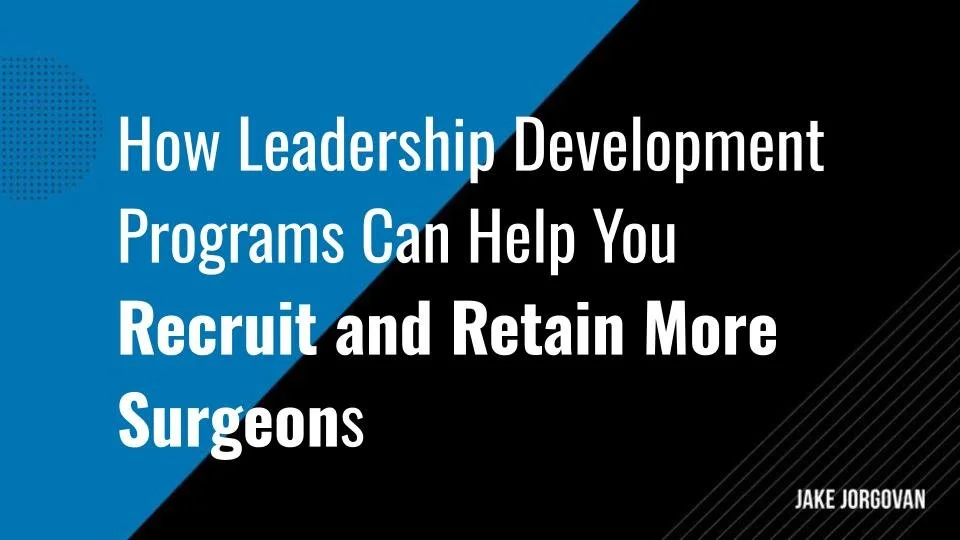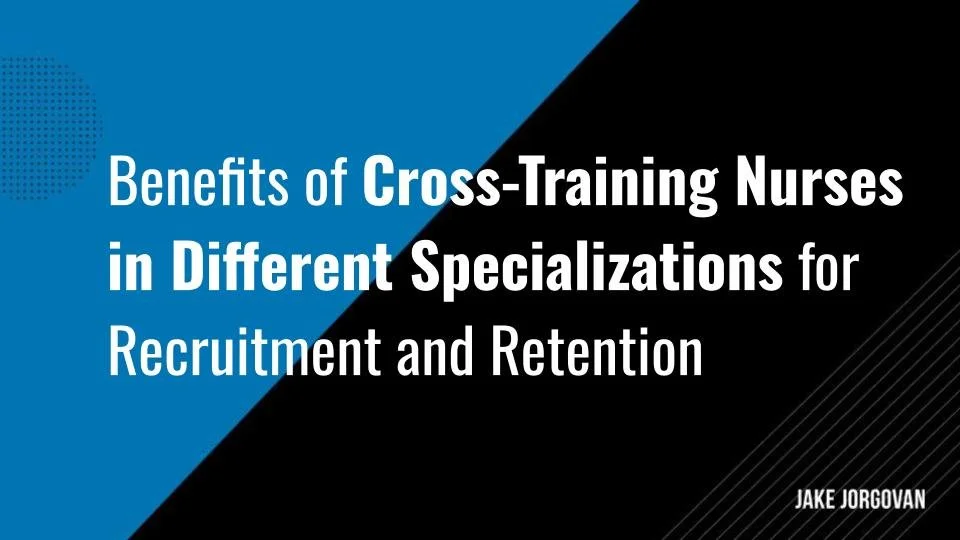Top 10 Challenges Healthcare RPO Solves for Growing Healthcare Organizations
Healthcare recruitment is a complex and ongoing challenge for growing organizations.
As hospitals and clinics expand, they face increasing pressure to find the right talent quickly.
Traditional hiring methods often fall short when dealing with the high demand and specialized roles required in healthcare.
This is where healthcare RPO (recruitment process outsourcing) comes in.
This article covers the top challenges growing healthcare organizations face and how healthcare RPO solves them:
Scaling recruitment efforts.
Addressing talent shortages.
Ensuring compliance with regulations.
Managing high-volume hiring needs.
Reducing administrative burdens.
Keep reading to explore how healthcare RPO can streamline your hiring, ensure compliance, and support your growth in the fast-evolving healthcare sector.
Challenge 1: Scaling Recruitment Efforts to Meet Growing Demand
Scaling recruitment to match the growth of healthcare facilities, such as new hospital wings or additional clinics, presents a significant challenge.
Traditional hiring strategies often fail to meet the rapid and specialized demands of these expansions, making tailored healthcare RPO solutions indispensable for adapting to this dynamic environment.
Healthcare RPO offers scalable recruitment models that effectively adjust to the varying needs of growing healthcare organizations:
1. Dynamic scaling
Adapts recruitment capacity in real-time to meet surge demands or scale down during quieter periods.
2. Tailored recruitment strategies
Develops customized hiring plans that address the specific needs of expanding facilities.
3. Advanced sourcing techniques
Uses cutting-edge tools and networks to access a wider pool of qualified candidates quickly.
4. Rapid deployment
Mobilizes resources swiftly to fill positions, ensuring that growth timelines are met without compromising on talent quality.
Challenge 2: Talent Shortages in Specialized Roles
The shortage of specialized healthcare professionals persists, significantly impacting sectors like nursing, medicine, and medical technology.
This gap poses a consistent challenge as organizations struggle to find skilled individuals capable of meeting complex patient care needs and advancing medical innovation.
Healthcare RPO mitigates talent shortages in specialized roles through strategic approaches:
Accesses broad and deep talent pools that include passive candidates who are not actively job searching.
Employs targeted recruitment tactics tailored to specific medical specialties, enhancing the draw for niche professionals.
Optimizes each step from sourcing to hiring, significantly shortening the time-to-hire.
Collaborates with educational institutions and professional associations to source upcoming talent and experienced professionals.
Challenge 3: Compliance and Regulatory Issues
Navigating regulatory compliance in healthcare recruitment means following a complex set of federal, state, and industry rules.
Organizations must carefully align their hiring practices with these regulations to avoid legal problems and maintain smooth operations.
Healthcare RPO helps ensure compliance with recruitment regulations through several key strategies.
It involves legal experts who oversee recruitment processes, making sure everything stays in line with the latest rules.
Regular audits are carried out to find and fix any potential compliance issues. Ongoing training is provided to recruitment teams so they stay informed about changes in regulations and compliance needs.
Detailed records of all hiring activities are carefully managed and maintained to support compliance and make audits easier.
Additionally, proactive risk management strategies are put in place to reduce legal risks and avoid fines.
Challenge 4: Retaining High-Quality Talent
Retaining high-quality talent in healthcare is challenging due to fierce competition and high demand.
Organizations must offer more than competitive salaries; they need to provide career development opportunities and a supportive work environment to keep top professionals engaged and committed.
Healthcare RPO enhances retention by implementing strategic, long-term recruitment plans:
Cultural fit focus: Prioritizes candidates who align with the organization’s values, reducing turnover by fostering a stronger workplace connection.
Tailored recruitment plans: Designs customized recruitment strategies that address specific organizational goals and workforce dynamics.
Engagement and career development: Promotes opportunities for growth and career advancement, boosting employee engagement and retention.
Retention metrics: Tracks and analyzes retention data to adjust hiring strategies and address potential issues early.
Proactive candidate assessment: Evaluates not just skills but long-term potential, ensuring hires contribute to lasting organizational success.
Challenge 5: Managing Recruitment Costs
As healthcare organizations expand, managing recruitment budgets becomes increasingly challenging. The need to fill new and specialized roles quickly often leads to escalating costs, which can strain financial resources and detract from other investment areas within the organization.
Healthcare RPO reduces recruitment costs through targeted, cost-efficient strategies.
It uses data-driven tools to find the right candidates quickly, minimizing the time spent on each hire.
RPO eliminates the need for expensive third-party staffing agencies, cutting significant overhead.
Also, it streamlines hiring across departments, reducing duplication and waste of resources.
Recruitment process outsourcing uses predictive analytics to forecast hiring needs, preventing overstaffing or unnecessary spending.
Besides, it offers scalable recruitment plans that adapt to fluctuating demand, helping organizations avoid overpaying during slower periods.
Challenge 6: High-Volume Hiring During Periods of Rapid Growth
During periods of rapid growth, such as expansions or acquisitions, healthcare organizations often face the challenge of high-volume hiring within tight timeframes.
This surge can strain traditional hiring processes and make it difficult to quickly secure enough staff.
Healthcare RPO (Recruitment Process Outsourcing) addresses these challenges using several key strategies:
Dedicated recruitment teams - Specialized teams are assigned to manage large-scale hiring projects, providing focused and efficient execution.
Advanced recruitment technology - AI-driven platforms are used to streamline the process of finding and screening candidates, speeding up hiring times.
Scalable infrastructure - Resources can be rapidly scaled to meet increased demand during periods of rapid expansion, preventing delays in filling critical roles.
Optimized candidate pipelines - Active talent pipelines are maintained to enable quick responses to bulk hiring needs.
Quality assurance - Rigorous screening processes are put in place to ensure that even during high-volume hiring, the quality of new hires remains consistent with individual recruitment standards.
This structured approach helps healthcare organizations navigate high-volume recruitment demands effectively, ensuring they can grow and adapt without compromising on quality.
Challenge 7: Maintaining Employer Brand and Candidate Experience
As healthcare organizations expand geographically, ensuring uniformity in employer branding and candidate experience across various locations becomes a significant challenge.
This disparity can affect the organization's reputation and its ability to attract top talent uniformly.
Healthcare RPO providers play a key role in unifying employer branding and the candidate experience.
They ensure that all recruitment communications consistently reflect the organization's core values and brand message, no matter the location.
To achieve this, they implement standardized procedures for candidate engagement, creating a consistent and positive experience for all applicants.
Recruitment staff receive comprehensive training on brand messaging and candidate care to ensure uniformity across the board.
Additionally, feedback from candidates is incorporated to continually improve the recruitment process and enhance the overall candidate experience.
Advanced HR technology solutions are also used to create a seamless and engaging journey for candidates at every touchpoint.
Challenge 8: Reducing Administrative Burden
The recruitment process in healthcare is burdened by extensive administrative tasks, including background checks, credential verification, and compliance documentation.
These tasks are yet time-consuming, diverting resources from core operational focuses and slowing down the hiring process.
Healthcare RPO alleviates the administrative load through strategic measures:
Task delegation: Assumes responsibility for all recruitment-related administrative tasks, ensuring accuracy and timeliness.
Process automation: Employs advanced software to automate background checks, credential verification, and compliance documentation, enhancing efficiency.
Expert handling: Uses specialists trained in the intricacies of healthcare compliance and administrative procedures.
Resource optimization: Frees up internal HR teams to concentrate on strategic initiatives and core business functions.
Continuous improvement: Regularly updates and refines administrative processes to keep pace with regulatory changes and technological advancements.
Challenge 9: Adapting to Changes in Healthcare Regulations
The healthcare sector is marked by rapid regulatory changes, posing a significant challenge for internal teams to remain compliant.
Keeping pace with continuous updates in laws and standards demands specialized knowledge and dedicated resources that many organizations struggle to maintain.
Healthcare RPO providers ensure compliance with evolving regulations through several proactive strategies:
1. Regular training
Recruitment teams receive ongoing legal and compliance training to stay updated on the latest regulations.
2. Legal expertise
Healthcare compliance experts monitor regulatory changes and provide guidance on necessary adjustments to recruitment practices.
3. Compliance audits
Providers regularly audit recruitment practices to verify adherence to new laws and standards.
4. Technology usage
They use compliance tracking and management software to automatically update processes in line with regulatory changes.
5. Strategic planning
Providers integrate regulatory forecasts into strategic planning to anticipate and prepare for future changes in the regulatory environment.
Challenge 10: Aligning Recruitment with Long-Term Strategic Goals
Aligning recruitment with long-term strategic goals is crucial for healthcare organizations focused on enhancing patient care and exploring new service areas.
This alignment ensures that staffing not only meets current needs but also supports future growth and organizational objectives efficiently.
Healthcare RPO aligns recruitment with long-term goals by employing strategic initiatives:
Develops recruitment plans that anticipate future growth, ensuring the workforce scales effectively with new service expansions.
Aligns talent acquisition with organizational priorities, such as enhancing patient care quality or opening new service areas.
Identifies gaps in current staff capabilities and recruits talent to meet future organizational demands.
Creates customized strategies focused on meeting long-term goals while maintaining operational efficiency.
Works closely with organizational leaders to ensure recruitment aligns with evolving business goals and future strategic direction.
Additional Solutions RPO Brings to Growing Healthcare Organizations
As healthcare organizations continue to grow and adapt to changing demands, they often face unique challenges in their recruitment processes.
RPO offers a range of solutions that address these challenges, enhancing both the speed and quality of hiring.
By tapping into specialized expertise and leveraging advanced technology, RPO providers streamline recruitment, making it a strategic asset for growth.
Speed and Efficiency in Hiring
Healthcare RPO accelerates recruitment processes by leveraging advanced technology and specialized expertise.
Automated communication systems keep candidates engaged and informed through automated messaging, which reduces response times and eliminates communication gaps.
Predictive analytics play a crucial role in forecasting hiring needs and identifying the best sourcing channels, thus minimizing time spent on candidate searches.
Specialized recruiter networks deploy expert recruiters with niche healthcare knowledge to efficiently target and engage specialized talent.
The use of digital onboarding platforms streamlines onboarding, reducing administrative delays, while centralized recruitment platforms consolidate all recruitment activities into a single, technology-driven interface to enhance coordination and tracking.
Additionally, technology-assisted interviews utilize virtual tools to speed up candidate assessments and provide flexible interview options without compromising quality.
Access to Advanced Recruitment Tools
Additionally, RPO providers offer growing healthcare organizations a significant competitive edge by utilizing cutting-edge recruitment tools.
AI-based candidate matching rapidly pairs candidate profiles with job requirements using advanced algorithms, reducing the time needed to fill critical roles.
Data-driven hiring insights analyze historical recruitment data to predict candidate success and retention, leading to more informed hiring decisions.
Advanced sourcing platforms harness AI-driven tools, such as HireVue, to find passive candidates across multiple channels, ensuring a diverse and robust talent pool.
Chatbot assistance further streamlines recruitment by handling initial inquiries and pre-screening, speeding up processes while maintaining candidate engagement.
Talent market analytics provide deep insights into salary trends and candidate availability, enabling competitive and strategic offers.
Predictive hiring metrics anticipate future staffing needs, aligning workforce planning with organizational growth goals.
Finally, digital assessment tools use gamified approaches to objectively evaluate candidates' skills, ensuring consistent and thorough talent evaluation.
How Healthcare RPO Solutions Overcome Top Recruitment Challenges
Healthcare RPO addresses the most pressing challenges growing healthcare organizations face. From scaling recruitment efforts to managing high-volume hiring and ensuring compliance, RPO providers deliver specialized solutions.
They optimize processes, reduce costs, and streamline administration while aligning recruitment with long-term business goals.
Partnering with a healthcare RPO provider is key to achieving efficient growth. It ensures compliance, lowers recruitment costs, and helps organizations stay competitive in a demanding healthcare market.
By leveraging technology and expertise, RPO providers enable organizations to focus on delivering quality care while maintaining a strong, scalable workforce.






















